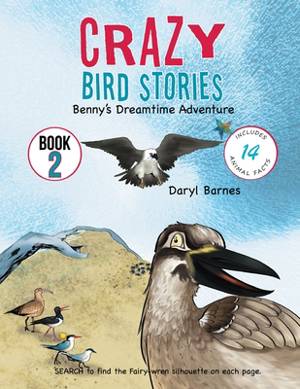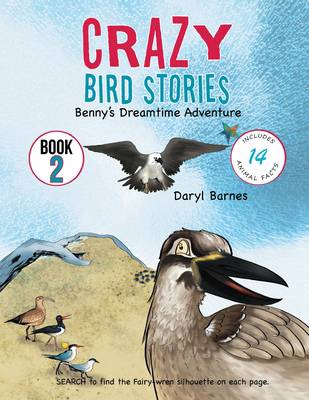
- Afhalen na 1 uur in een winkel met voorraad
- Gratis thuislevering in België vanaf € 30
- Ruim aanbod met 7 miljoen producten
- Afhalen na 1 uur in een winkel met voorraad
- Gratis thuislevering in België vanaf € 30
- Ruim aanbod met 7 miljoen producten
Omschrijving
The idea for this book came to me one day whilst I was sitting on the beach near Finlayson's Point at Seaforth on the Central Queensland coast. I was watching a solitary Beach Stone-curlew as it sauntered over the tidal mudflats creating a mournful and rather sad image as the sun was setting over the horizon in the west. This created elongated shadows of the bird plus the oddly twisted mangrove tree that was scattered nearby along the foreshore. Other than this bird, there was no other life form visible to me anywhere.
Where I sat near the high tide mark, I could see the ocean some two hundred metres away in the distance. It was low tide and before too long it would begin to make the long and steady journey back to where I sat. So there was a large area of exposed sea-bed available for the Beach Stone-curlew to explore and to search for food like crustaceans and shellfish. But there was no urgency shown by the bird as it was more concerned with my presence than it was in looking for food.
It could hardly be described as a handsome bird-like that of a Black-necked Stork (Jabiru), Brolga or Great Egret and so would not be high on the list of priorities for selection to feature as the main character in a storybook. So why did I choose the Beach Stone-curlew?
My reason I've used it as the main character is to help raise its profile and awareness to highlight the issues surrounding its existence where habitat pressures by man is forcing it to more remote areas of the east coastline of Australia. It's breeding habits also make it very vulnerable as the female lays one or maybe two eggs amongst the high tide debris.
Welcome to my second book in the series of Crazy Bird Stories. This book is significantly different from the first although it does have some similarities as you will discover.
Since my involvement with Birdlife Mackay, I have had the privilege to witness all the birds that are regulars in our area, including seasonal birds. During this time I have seen at first hand the state of the environment where our birds live and so have identified some key areas where something can be done to preserve and enhance critical habitat. This book highlights the importance of undisturbed tidal flats to the Beach Stone-curlew and its survival.
Specificaties
Betrokkenen
- Auteur(s):
- Uitgeverij:
Inhoud
- Aantal bladzijden:
- 36
- Taal:
- Engels
Eigenschappen
- Productcode (EAN):
- 9781643765112
- Verschijningsdatum:
- 4/11/2019
- Uitvoering:
- Paperback
- Formaat:
- Trade paperback (VS)
- Afmetingen:
- 216 mm x 279 mm
- Gewicht:
- 140 g

Alleen bij Standaard Boekhandel
Beoordelingen
We publiceren alleen reviews die voldoen aan de voorwaarden voor reviews. Bekijk onze voorwaarden voor reviews.











